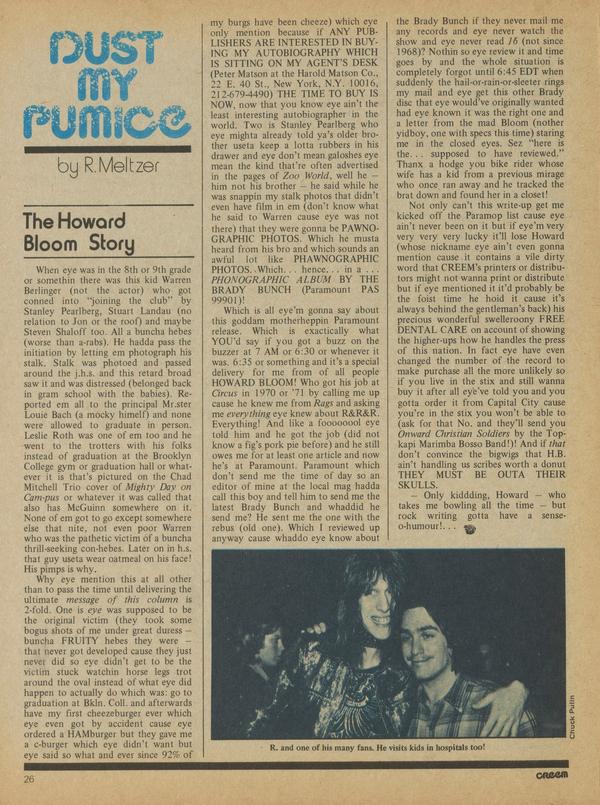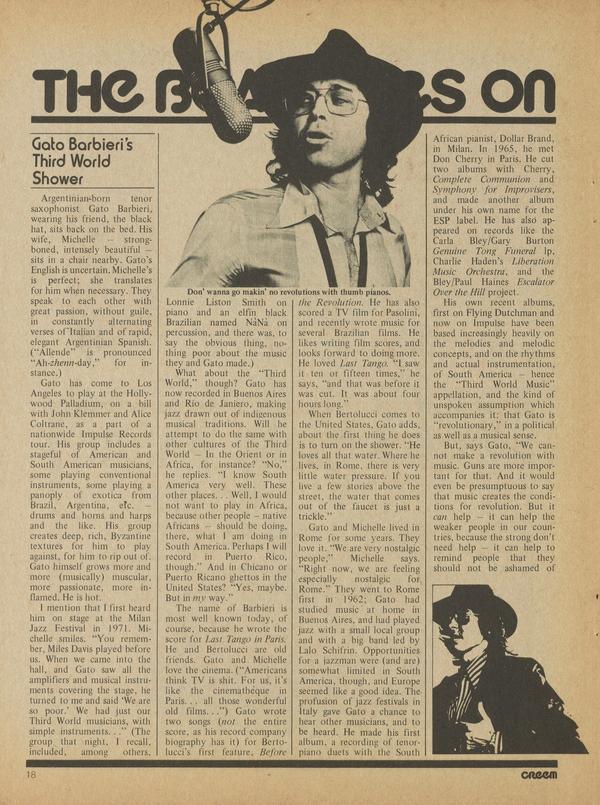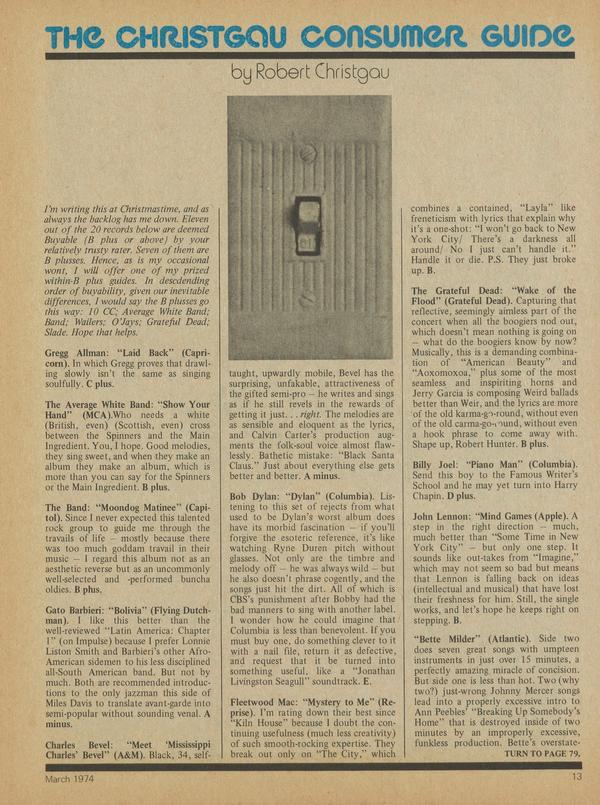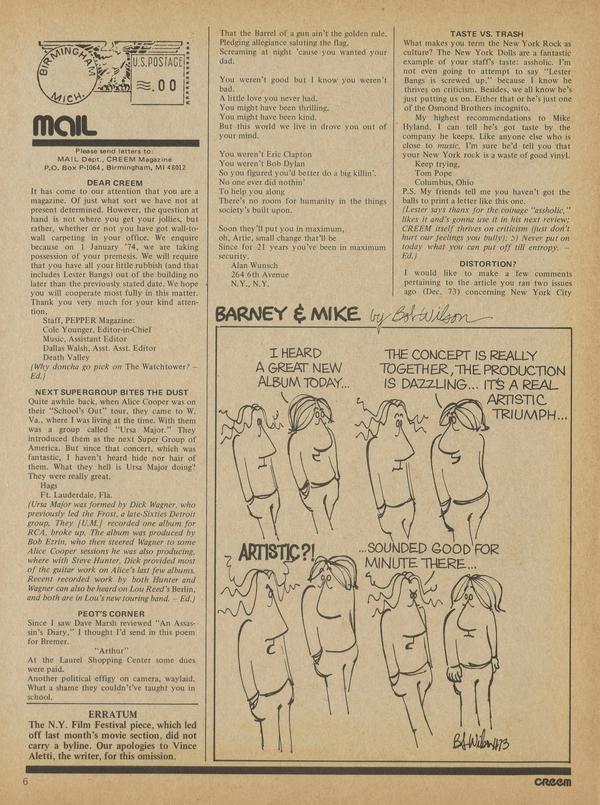Extension Chords
Strung Out On Strings
In the course of a guitar's life, few things play as crucial a part in its happiness as the strings that axe wears.

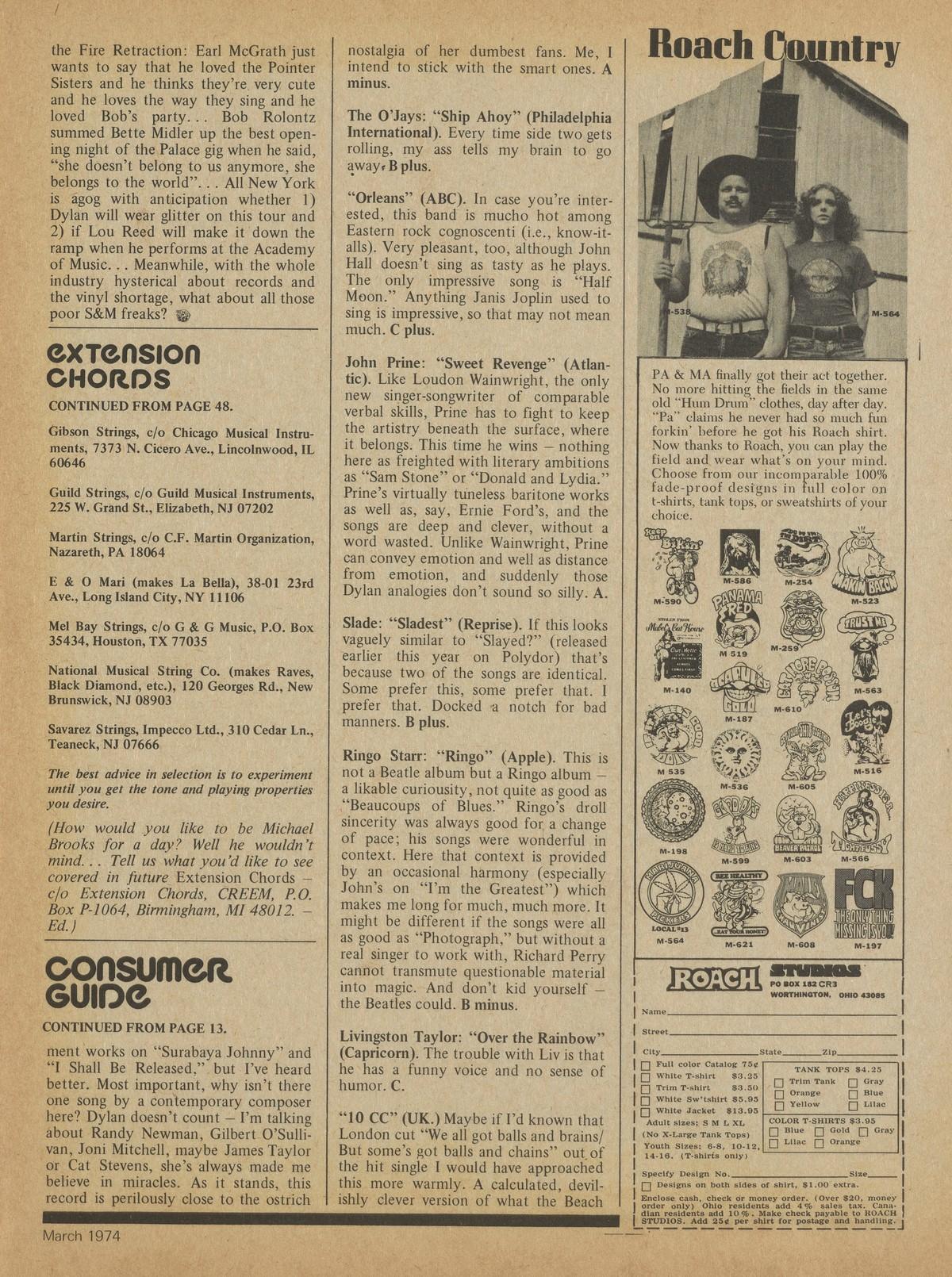
In the course of a guitar's life, few things play as crucial a part in its happiness as the strings that axe wears. Strings can make a good guitar sound bad and a bad guitar sound good. They can help develop or destroy your sense of correct pitch and have the potential to make a guitar sing sweetly or barf excruciatingly, and thus, may add or subtract to your interest in the instrument.
When you play your guitar with worn out strings which won't fret-true or tune to pitch, your ear, knowing no tune to pitch, your ear, knowing no better, begins to pick up this sense of incorrect pitch, and thus, totals your sense of what's on and off key. While this is an extreme, it does happen. But strings can go "dead" for other reasons than just being worn down. The string may have collected particles of wax (if you wax your guitar) or dirt (if you take your guitar out of a case) which become implanted in the grooves of a wound string. This little collection, however slight, may cause the string to go dead because the dirt adds mass to the string's properties. Some go because of fatigue some because of stretching fatigue (usually caused by tightening a string over its recommended pitch as in tuning your instrument to an open tuning), and others, because of the amount of acid (not that kind) in your hand's sweat (or perspiration as we say at the club). A good cure of the latter (perspiration) and in prolonging a string's life is to give it the old one-two with a lint-free cloth after each playing session. This takes off the surface perspiration and can add days, even weeks to your string's life and health.


